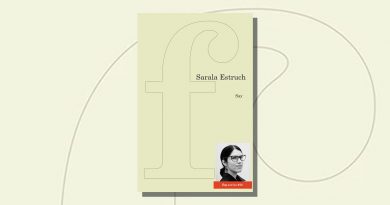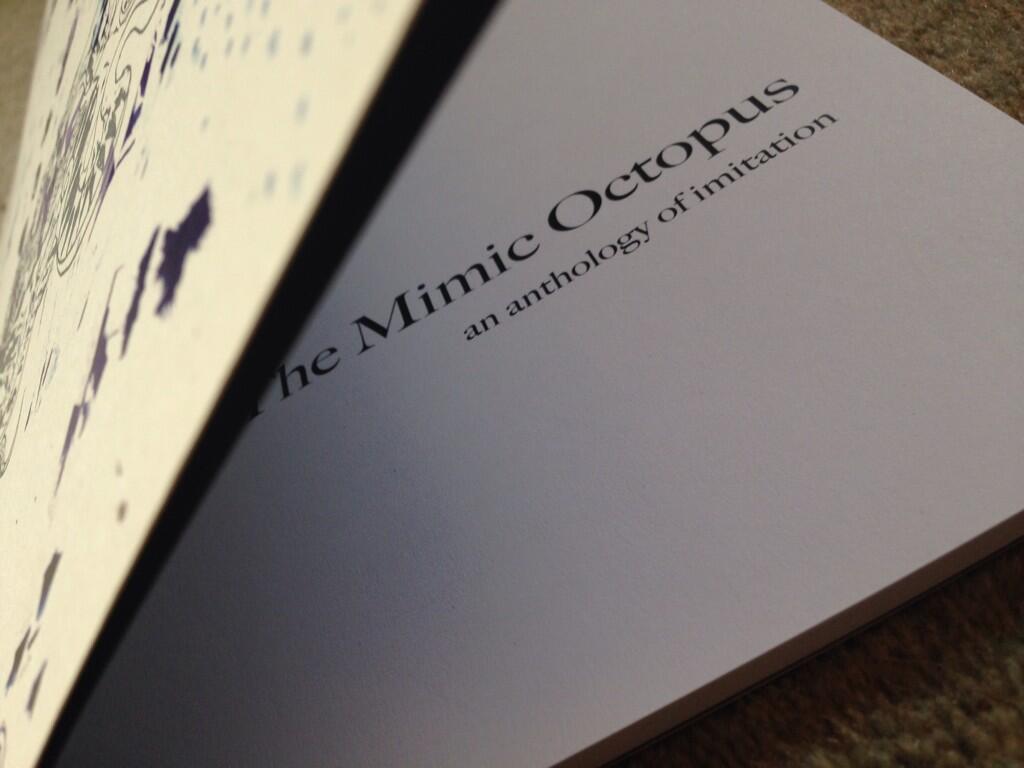‘Catechism: Poems for Pussy Riot’ edited by Mark Burnhope, Sarah Crewe & Sophie Mayer
-Reviewed by Harry Giles–
Catechism is a broad, open-hearted project, an anthology of poems for Pussy Riot, to which 110 poets donated their work in solidarity with the imprisoned protest group. As the editors say, it is “a cornucopia of approaches to freedom and to feminism” – a project which glories in and suffers from its wide range in equal measure.
George Szirtes’s questioning introduction claims it is “a political act in poetic form”, while the editors call it an “offertory” – that is, a collecting of alms. This uneasy dichotomy between charity and protest runs throughout the anthology. Szirtes’s benign bemusement is a good case in point: while in a two-sided war he knows he would stand with Pussy Riot, he is unsure what he as an older male British-based poet is doing introducing the anthology, or what the anthology itself is doing when “it is unlikely to affect the course of events in any measurable way”.
Answering this question, on the one hand, are poems like The Gingerbread Tree’s punk visual ‘This is a free riot’, which claims it has been illegally billposted over Manchester. Then there is Sally McAlister’s rousing and up-front The Queendom of Revolution which calls “For freedom // for feminism // For Revolution”, and Chella Quint’s In Vogue, which mocks the fashionable appropriation of Pussy Riot (“This is a serious cause, guys. My look has to rock.”) alongside instructions for illegal solidarity stencilling. These are punk poems, protest poems, political acts.
Scattered throughout are more oblique poems, poems riffing on the punk and feminist themes. Often these are the more experimental works, which could be seen as punking the poetic form. Karen Press’s Strange is a fine example here, as an erasure which pulls from another poem the lines “Strangers ate my cunt / asking a thousand questions as to its use” and “My word. / A rough demand. / I told them it was a weapon”. Jon Stone’s Balaclavas are also delicious: concrete poems in balaclava form in which “I raise the petrol-soaked / air to my lips and drink it”, as if the poet were downing a molotov.
On the other side of the question, there are poems like Tony Walsh’s Because the Poets Know, a simple, almost truistic list of reasons poetry and speech are important, asking us to join him in saying “Your pressure and violence / will beat neither silence /nor soul from a poet.” Similarly, Karen Connelly’s ‘Here my love, listen.’ says of a Pussy Riot heroine:
“you forsake
every weapon but the hand
thrashing a guitar.
And the voice, the unruly voice,
raising its riot
of song.”
These poems are written in solidarity, praise Pussy Riot’s speech act, and simply call for their release – they are more offering than protest. What coherent political platform there is in the anthology thus reduces to a call for freedom of speech. The poems are often also in solidarity with Pussy Riot’s feminism – but rarely are in solidarity with Pussy Riot’s wider political project: a call for autonomist (often armed) insurrection. The riot in Pussy Riot is not a floating signifier: it is a very real riot indeed. Their own words give the lie to Laurence Ebersole’s “Pussy Riot sing civil – never violent” (Lyrical Catapult):
“Spend a violent day among strong women
Look for scrap on the balcony, raze the pavement”
– Raze the Pavement, Pussy Riot, translated at freepussyriot.org
“The knuckle-duster’s ready, feminism’s sharpened
Take your soup away to Eastern Siberia
So that Riot will become rough enough”
– Kropotkin-Vodka, Pussy Riot, translated at freepussyriot.org
If the poets honestly face the meaning of Pussy Riot’s words, then this anthology of solidarity rarely stretches farther than the Evelyn Beatrice Hall’s apocryphal Voltaire, which with grim inevitabiltiy we find paraphrased in John Ennis’s For Nadia, Katya, Masha in Prison: “I will defend to the death your right to say what you will”. This is an admirable project, but one that seems a little limp in the face of Pussy Riot’s punk.
Some of the poems understand the situation with gorgeous poetic clarity, as in Charlotte Geater’s Avoid Using the Word ‘Pussy’, which confronts the liberal interpretation of Pussy Riot head on, asking difficult questions:
“the punk rock girl band / stop bitching
whose name we can’t say / i call them bitches
on morning television / because they are bitches
the girls are sinners, they’ve made their
choice against christ & real madonna
what pussies, when riots?”
The uncomfortable reference here is to Pussy Riot’s refusal of Madonna’s and Bjork’s financial solidarity: “We’re flattered, of course, that Madonna and Björk have offered to perform with us. But the only performances we’ll participate in are illegal ones. We refuse to perform as part of the capitalist system, at concerts where they sell tickets.” (Radio Free Europe / Radio Liberty, August 28th 2012)
But alongside these more riot-aware poems, some of the pieces seem bizarre in the Pussy Riot context. In Veronica Zundel’s Prayer and Pussy Riot Have Three Letters in Common, Mennonites, a fairly archetypically patriarchal religious sect, pray for Pussy Riot’s release and supposedly “God is smiling”, as if Mennonites and God were not high on Pussy Riot’s hit-list. Or there is Tom Spencer’s Dear Pussy Riot, which reduces the group’s protest to a message to “keep at it, no matter what”, a moral no less asinine for all that the author admits that he is “a prick and a jerk” and “angry and bitter / at my failure to finish this work”.
Amongst these are better but still problematic works, like Jack Underwood’s Our Glorious Leader Putin. This piece is a brilliantly-assembled satire of Putin the macho man and throbbing phallus of oppression, but this is Putin as easy target, Pussy Riot as easy cause celebre – the dictator too internationally loathed, the artists too passionately eloquent. It is uncomfortable to find so many British and Western poets condemnding a despot overseas while forgetting the despots at home. Why, for example, is there no 110-poet feminist anthology calling for Barack Obama to free CeCe Macdonald, the African American transgender woman imprisoned on a suspect manslaughter charge? CeCe is not so easy a cause. And why does America’s kill-ordering, executive-expanding, citizen-murdering President not appear in Philo Ikonya & Helmuth A. Niederle’s Dictators Never: Roll Call, which approves of riot only when the bogeyman is unambiguous. Obama is not so easy a target, and not just because he is more metrosexual than shirtless Putin. But poetry should not just stand up for easy causes and pick on easy targets – that makes for easy poetry.
In short: Catechism risks, in its liberal call for freedom and human rights, being co-opted by a Western-centric anti-Russian sentiment. Unless poets are careful, we can be led to implying that terrible oppression only occurs “over there”, and never where we are standing. In an anthology as various as Catechism, of course, some poets do square up to this very problematic. Jeff Hilton’s ‘With my Pussy Riot shorts on let me’ speaks of “the Russian the complicated anonymous / Russian” but is “sick of writing about Russians.” Sandra Alland’s Weapons of Minor Destruction concerns itself as much with domestic oppression as international violence and complicatedly says “All the people like me/ are thanking / all the people like you.” In Alex Macdonald’s Please Welcome to the Stage an apparently Western MC talks of “Where brown bears eat cats in dark alleyways” but says “ladies, please put your hands together /And keep them where we can see them.”
Catechism is uncertain what it is doing, but it is a beautiful book. Working rapidly, the editors have anthologised generosity, anger, satire, experiment, hope, and more. But what it captures is less a coherent outcry, protest, thrown brick or prayer, and more a spectrum analysis of (mostly) British ideas, interpretations and appropriations of Pussy Riot. Nevertheless, while its problematics and inconsistencies are important for all readers to understand, it is probably only curmugeonly anarchists like me who are likely to complain very deeply about them: in the grand liberal tradition, the anthology contains something for everyone, which is perhaps precisely my problem.
Catechism can be downloaded by donation or ordered print-on-demand at http://www.englishpen.org/the-poems-for-pussy-riot-project/. Pussy Riot can be followed and supported at http://freepussyriot.org/. CeCe Madonald can be followed and supported at https://supportcece.wordpress.com/, and if you’d like to work on an anthology for her then Harry would like to hear from you (www.harrygiles.org). The editors of Catechism were interviewed by Sabotage here and here.





Pingback: Poems for Pussy Riot: Review and Response « Harry Giles : Home
Pingback: Published Poetry 2012: a Top 10 « Sabotage
I thought this was a very thoughtful, honest, and wide-ranging review,and I enjoyed reading it. It’s good to read criticism that is real criticism, and critical, but also generous. Rare! So much appreciated.
k connelly
(one of the contributors to Catechism.)
You make some pertinent comments, but in your comment on my poem you display ignorance of both Mennonites and Pussy Riot. Yes, conservative Mennonites have been traditionally patriarchal, as I acknowledge in my poem, but the C16th Anabaptist movement from which they sprang gave more freedom and power to women than either the Catholic church or the mainstream reformation (not for nothing have they been called the Radical Reformation) and there are many urban, non-conservative Mennonite churches like my own that espouse complete gender equality as part of our concern for justice as well as peace. Secondly, you seem not to be aware that one of the members of Pussy Riot is an Orthodox Christian, who protests against the theology and politics of the Russian church precisely because she does believe in a radical God.
Pingback: Saboteur Awards 2013: The Shortlist | Sabotage
Pingback: Saboteur Awards 2013: Published Poetry | Sabotage
Pingback: ‘flick invicta’ by Sarah Crewe | Sabotage
Pingback: Gay Propaganda: Russian Love Stories (ed. Masha Gessen & Joseph Huff-Hannon) | Sabotage
Pingback: Poetry & Praxis, Part II | Comparative Literature @ Cal